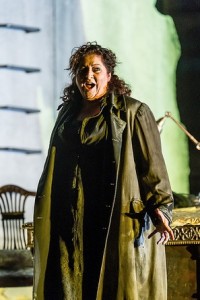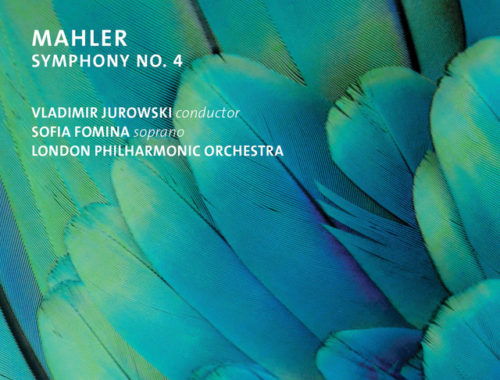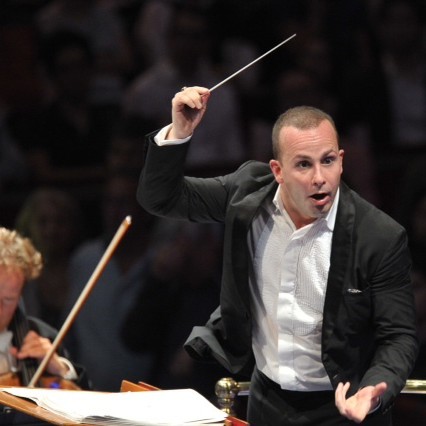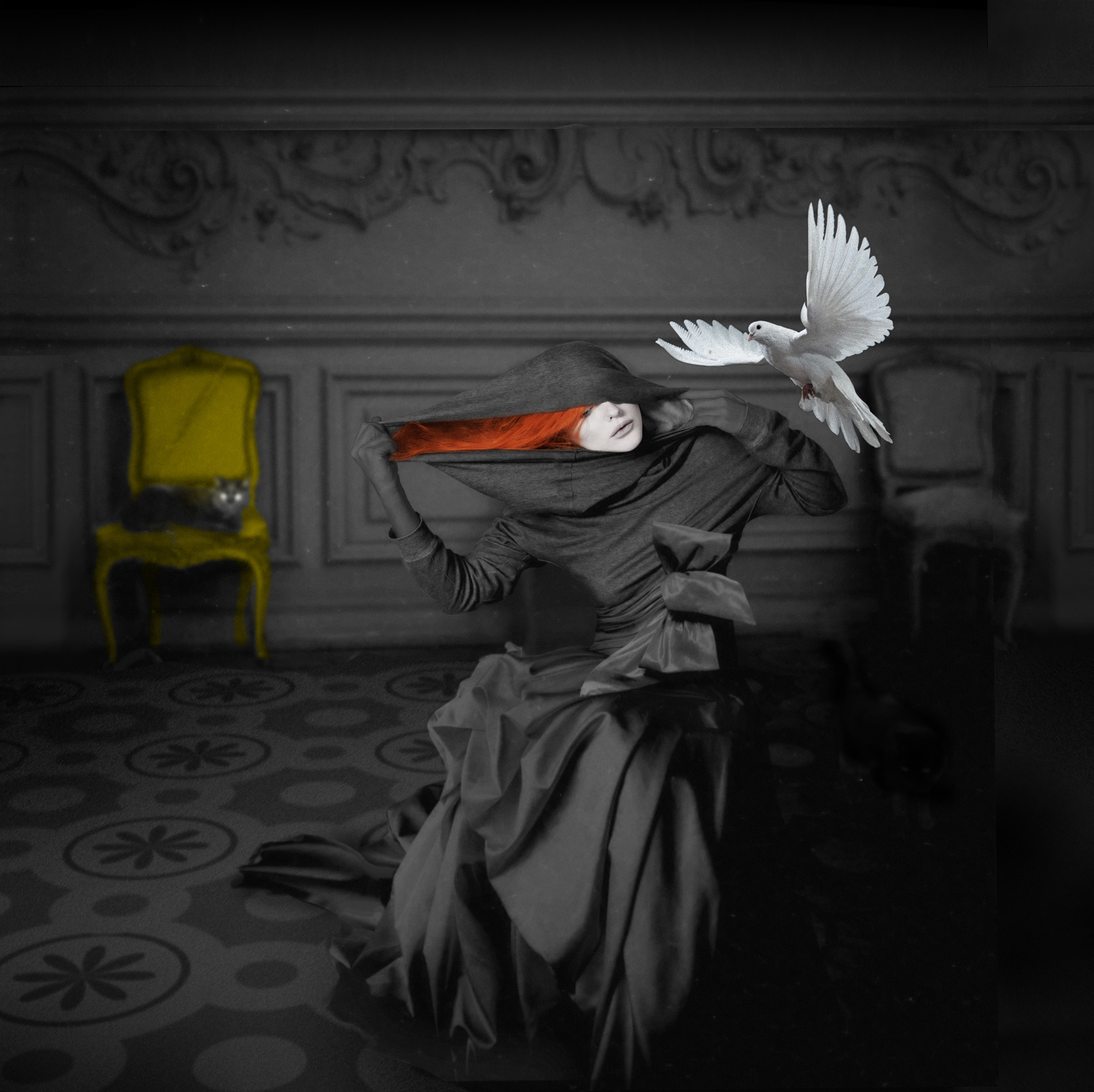Elektra, Royal Opera House (Review)
 Applause for the conductor – even if it is Andris Nelsons – is just about the last thing we need to hear when Richard Strauss is about to fling down the brutal chords which spell out the name of Agamemnon. Surely the start of Elektra is now one of those occasions where we must set aside operatic conventions and plunge directly into the darkness of the action. All is not well in the House of Atreus and as serving maids remorselessly scrub blood from the forecourt of the palace at Mycenae the detritus of decay is everywhere – not least in Strauss’ orchestra. Forget the shadowy figure of Elektra for a moment, this is an orchestra on the verge of a nervous breakdown and Nelsons direction, in this second revival of Charles Edwards’ 2003 staging, is pitilessly full-on.
Applause for the conductor – even if it is Andris Nelsons – is just about the last thing we need to hear when Richard Strauss is about to fling down the brutal chords which spell out the name of Agamemnon. Surely the start of Elektra is now one of those occasions where we must set aside operatic conventions and plunge directly into the darkness of the action. All is not well in the House of Atreus and as serving maids remorselessly scrub blood from the forecourt of the palace at Mycenae the detritus of decay is everywhere – not least in Strauss’ orchestra. Forget the shadowy figure of Elektra for a moment, this is an orchestra on the verge of a nervous breakdown and Nelsons direction, in this second revival of Charles Edwards’ 2003 staging, is pitilessly full-on.
On the decibel counter it doesn’t get much louder than this, folks, but the bludgeoning effect of its most violent upheavals is brilliantly offset by Nelsons’ skill at eviscerating the score, so to speak, and revealing the maggoty activity of its innards. It is always astonishingly transparent. Bass woodwinds worm and squirm their way through the texture, string basses grunt and shudder, upper strings are the lashes of the overseer’s whip, and the bass tuba stares into the darkness of Elektra’s despair. It is a tribute to Nelsons’ stark exposition of the score that those rare moments of tenderness, most often cello-led, stand out from the overriding decomposition of the piece. “Can one live while decaying from within?”, asks Klytämnestra in her big scene with Elektra. The answer is entirely in Strauss‘ orchestra and in that Nelsons is wholly, unsettlingly, uncompromising.
So, too, is his Elektra, the American soprano Christine Goerke whose great invocation to her father revealed her big and unfathomably dark sound for the first time. The girth of the voice was hugely imposing at that early stage of the evening and she nailed just about everything in the monster scena, whacking out the top C like she had a bunch of those in reserve. Very exciting. She’s a good actress, too, with expressive eyes and a way of expressing vulnerability that has nothing to do with posturing. But had she oversung the dress rehearsal (by all accounts sensational)? Was she always singing within herself – as far as is possible in this role? Was she pushing too much? I’m not sure. All I know is that one was conscious of the vocal stress in a way that I was not with the Elektra of the last revival, Susan Bullock. For sure, her conductor, Mark Elder, was far more forgiving than Nelsons but with far less voice (in terms of size) one felt that she could go on singing the role with impunity. When Goerke reached the Recognition Scene with Iain Paterson’s noble and impassioned Orest the soft, high, singing required was eluding her and for all her compassion one felt that she was pretty much sung out. I guess what I am saying is that all roads lead to that scene and that’s where we really see Elektra and feel her heartache. It has to be the best and most tender singing of the evening.
But what a connoisseur’s cast the Royal Opera had fielded here. The top line of the evening soared through Adrianne Pieczonka’s thrilling Chrysothemis, her paean to womanhood and motherhood going straight from the heart to the heart. Here was a woman desperately clinging on to the last vestiges of self-respect in a way that made the final scene all the more overwhelming. And how rare that moment of softness between her and her sister when, earlier in the evening, they are briefly united in their love for the absent Orest.
Indeed Pieczonka looked like the softer side of her mother – the imperious Michaela Schuster – whose haunted silent movie vamp was all the more chilling for its restraint. This was far from the parody of Klytämnestra we have so often seen in the past but a performance of great subtlety and lieder-like clarity of text.
John Daszak’s Ägisth bodes well for his first complete Siegfried to come (Geneva) and how well Nelsons laid on the Rosenkavalier-like mockery of his imminent demise with the centrepiece of Charles Edwards‘ design coming into its own with wicked, comical, irony – a revolving door to the abattoir. At the close it’s like Götterdämmerung all over again but this time it’s the redemption of revenge not love.
You May Also Like

GRAMOPHONE Review: Mahler Symphony No. 4 – London Philharmonic Orchestra/Jurowski
12/09/2019
A Conversation With WILL TODD
02/09/2010

